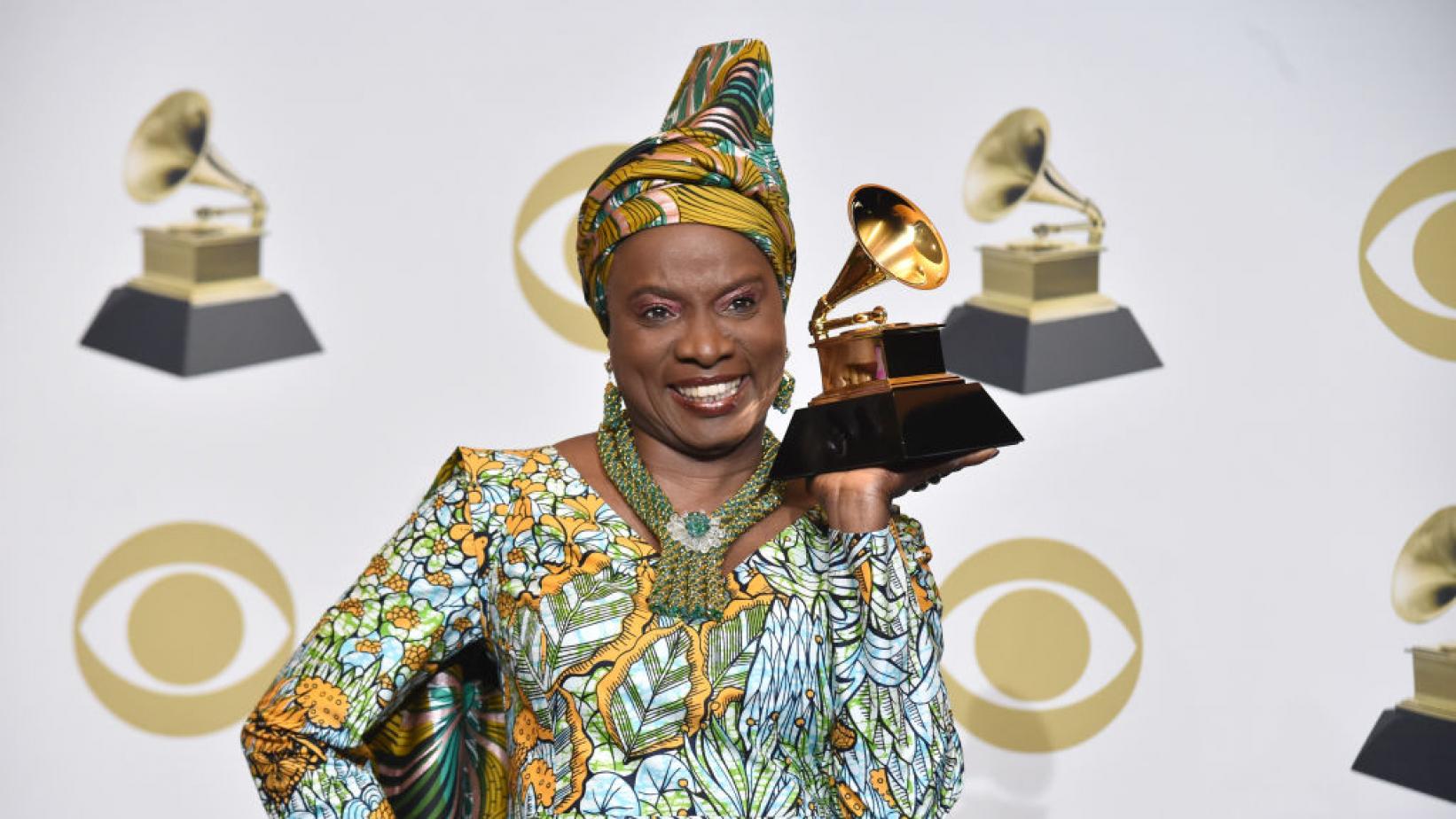Grammy: Angelique Kidjo, the ‘Yourba’ diva who defeated Burna Boy
Angélique Kidjo won the Best World Music Album award at the 62nd Grammy Award, defeating Nigerian Afro-fusion singer, Damini Ogulu, better known as Burna Boy. The 59 year-old is a Beninese singer-songwriter, actress, and activist who is noted for her diverse musical influences and creative music videos, referred to as “Africa’s greatest living diva” according […]

Angelique Kidjo
Angélique Kidjo won the Best World Music Album award at the 62nd Grammy Award, defeating Nigerian Afro-fusion singer, Damini Ogulu, better known as Burna Boy.
The 59 year-old is a Beninese singer-songwriter, actress, and activist who is noted for her diverse musical influences and creative music videos, referred to as “Africa’s greatest living diva” according to National Public Radio (NPR) in America.
READ: Grammy Party: Burna Boy performs at Hollywood Athletic Club
Kidjo was born in Ouidah, Benin. Her father is from the Fon people of Ouidah and her mother from the Yoruba people.
Kidjo is fluent in five languages: Fon, French, Yorùbá, Gen (Mina), and English.
She sings in all of them, and she also has her own personal language, which includes words that serve as song titles such as “Batonga”. “Malaika” is a song sung in the Swahili language.
READ: Beninese Angélique Kidjo wins Best World Music Album, dedicates Grammy Award to Burna Boy
Kidjo often uses Benin’s traditional Zilin vocal technique and vocalese.
She grew up listening to Beninese traditional music, Fela Kuti, Miriam Makeba, Hugh Masekela, James Brown, Manu Dibango, Otis Redding, Jimi Hendrix, Stevie Wonder, Osibisa, and Santana.
The African diva who started performing at the tender age of six along side her mother’s theater group in Benin, has grown to having recorded 16 albums including the album Celia which has won the Best world music album at the 62nd Annual Grammy in 2020.
With Rachel Wenrick, Kidjo has written a memoir entitled Spirit Rising. It was published by Harper Collins on January 7, 2014. Desmond Tutu wrote the preface and Alicia Keys the foreword. On the back cover, Bill Clinton is quoted as saying: “The only thing bigger than Angélique Kidjo’s voice is her heart. In this evocative memoir, Kidjo chronicles an inspiring life of music and activism, and raises a passionate call for freedom, dignity, and the rights of people everywhere.”
She is a recipient of so many awards and nominations including been the first woman to be listed among “The 40 Most Powerful Celebrities in Africa” by Forbes magazine. She is also the recipient of the 2015 Crystal Award given by the World Economic Forum of Davos in Switzerland and received the Ambassador Of Conscience Award from Amnesty International in 2016.
Kidjo is also a big advocate on the fight for humanity.
UNICEF announced her as their goodwill ambassador in 2002. She is also a co-founder of the Batonga Foundation, which empowers some of the most vulnerable and hardest-to-reach young women and girls in Benin.
She has recorded many songs in campaign for humanity in which proceeds from the sales of the songs were donated to one good cause or another.
Kidjo is married to French musician and producer Jean Hébrail and had their daughter, Naima in 1993 in France.
Political conflicts in Benin prevented her from being an independent artist in her own country and led her to relocate to Paris in 1983.
